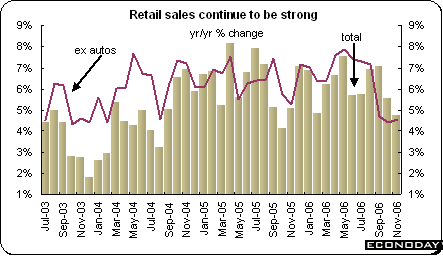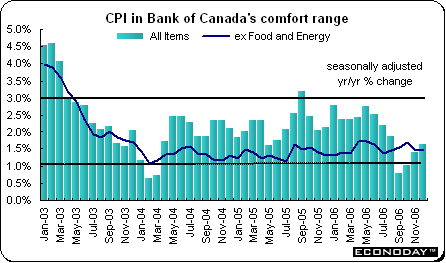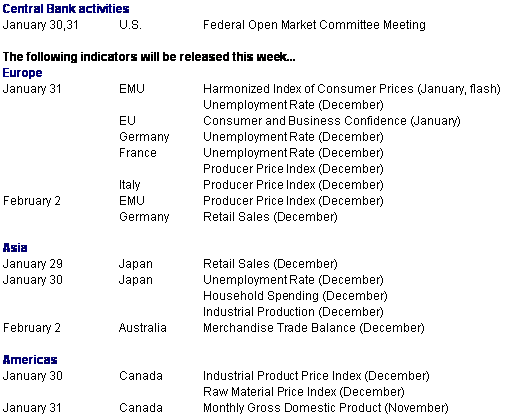International stocks succumbed to a variety of events last week including abrupt changes in currency values, earnings reports and inflation rhetoric. When the dust settled Friday afternoon, most of the indexes followed here were down on the week. Global equities were lackluster after failing to gain direction from a mixed U.S. earnings season. Oil prices rose sharply as colder weather hit North America and the U.S. announced plans to increase stockpiles of crude. On the week, U.S. markets along with Hong Kong, Paris, Frankfurt and London were down.
Global Stock Market Recap

Europe and the UK
Mid-week gains vanished Friday as European and UK equities followed U.S. stocks downward. In Europe, weakness in the engineering, real estate and financial sectors exerted negative pressure on the CAC and DAX. Aerospace and defense company EADS, owner of Airbus sank after Britain warned the that it risked losing out on military contracts worth billions of pounds if the UK is not awarded crucial wing component work on the next generation of Airbus passenger jets. In London, banks, mining stocks and oil majors all lost ground, with small gains for defensive stocks. And weaker metals prices sent shares in the mining sector lower. Indexes toyed with new six-year highs earlier in the week prior to sagging under the weight of what appears to be uncertainty about the path of U.S. interest rates. Widespread expectations at the year's start that the Federal Reserve would cut rates in the first half of 2007 have been scaled back after stronger-than-expected economic data coupled with high inflation data.

Bank of England shows split in MPC
The Bank of England surprised everyone earlier in the month with a rate increase. The minutes, which were released on Wednesday, showed a split decision with five members of the monetary policy committee voting in favor of the 25 basis point increase to 5.25 percent and four, including the governor, voting against the increase. The dissenters said there was insufficient evidence to warrant an immediate increase, one that would risk over-reaction in the markets. Analysts were surprised by the close vote. They said it made the Bank seem less 'hawkish' than before and lessened the risk of future increases. The last time five bank officials voted against the governor was in September 2000. At that time, the dissenters wanted to raise interest rates. It is the first time that the deputy governor in charge of monetary policy and the chief economist have both voted against the governor.
Dissenters said they expected inflationary pressures to recede later this year and the committee should not give the impression of reacting to short-term consumer price inflation volatility. They also thought the committee should wait for the economic forecasts in February's Inflation Report prior to making a decision to change interest rates. (In the recent past, most interest rate changes have occurred in the month in which the quarterly report is published.) The CPI was up 3 percent on the year in December, one percentage point over the Bank of England's inflation target of 2 percent. In a speech earlier in the month, governor Mervyn King he said the balance of risks to output growth and inflation has shifted towards the upside. Preliminary fourth quarter gross domestic product data indicated that the economy expanded by 0.8 percent, the fastest pace in two and a half years, and was up 3 percent on the year.
London Stock Exchange (LSE) continues to rebuff merger partners
The LSE turned down a Nasdaq bid to buy the exchange by saying the £2.7 billion-($5.3 billion) offer was insufficient and refused to discuss a merger. Led by CEO Clara Furse the LSE has repeatedly rejected Nasdaq's offer as inadequate. Nasdaq already owns 29.36 percent of LSE, and has said its offer for Europe's largest stock market represents a full and fair price. Under UK takeover law, Nasdaq can extend the deadline for investors to accept the offer until February 10. Nasdaq can still raise its offer if a rival bidder emerges, the company reiterated today. Nasdaq CEO Robert Greifeld has been trying for 10-months to create a trans-Atlantic market and boost profit by sharing technology platforms. Furse said the 308-year-old LSE has a viable independent future as trading and listings grow. LSE, which has also rejected takeover bids in the past two years from Deutsche Boerse AG, Euronext NV and Macquarie Bank Ltd., said earlier this week it would explore opportunities to increase value for shareholders.
Asia/Pacific
Asia/Pacific stocks with the exception of the Hang Seng were up last week, buoyed mostly by a positive start to the week. Gains were eroded as the week progressed. The Hang Seng's flying start to the week changed to barely negative with Friday's losses. Gains for Japanese stocks eroded after the CPI report was weaker than anticipated with banks and insurance companies the biggest losers. However, both the Nikkei and Topix managed to hold onto some of their gains after investors targeted companies with high dividends such as steel and utility companies instead. The data make it less likely the Bank of Japan will raise interest rates which would enable banks to increase their loan margins. Asian stocks were also negatively affected by declines in North American indexes.

Prospects of an interest rate increase weakened in Japan after a weaker-than-anticipated consumer inflation report. After their most recent two-day meeting on January 17th and 18th, Governor Toshihiko Fukui said most monetary board members cited the need to examine prices and consumer spending trends more. The vote had been six to three against a rate increase from the current level of 0.25 percent. The BoJ increased rates in July 2006 for the first time in almost six years. Expectations for a February increase now have waned because of the weak data and the prospects that government officials will continue to pressure the Bank to leave rates on hold. The weakness in the CPI has been attributed to sinking crude oil prices. Some BoJ board members think that prices will increase again after the adjustment for crude is over.
Prime Minister Shinzo Abe's government, focusing on policies to spur growth and stop the expansion of the world's largest public debt, wants to avoid an economic slowdown ahead of an upper house election in July. Fukui has said borrowing costs need to be raised gradually to avoid excessive business investment and asset-price bubbles. Finance Minister Koji Omi today urged the BoJ to support the economy with its monetary policy, though he added that specific policy decisions are up to the Bank. Economic and Fiscal Policy Minister Hiroko Ota said deflation remains in the world's second-largest economy.
Currencies
With the next Group of Severn meeting of finance ministers and central bankers two weeks away, the yen gained the most since April against the euro. It rebounded on speculation the G-7 will discuss the yen's decline in value at the meeting. Traders drove the yen higher after Reuters reported that European governments want the G-7 to strengthen its criticism of the yen's weakness when they meet in Essen, Germany on February 8 and 9. The yen has been dropping since the Bank of Japan's decision at its last meeting to leave its interest rate unchanged at 0.25 percent. It retreated again when the report was denied and jitters spread through currency markets over the so-called carry trade where funds are borrowed in low interest rate countries and invested in higher-yielding assets elsewhere.

The pound sterling soared to a 14-year high against the yen and the dollar early in the week. The currency was lifted by expectations of another UK interest rate increase. At one point it looked as though the pound would climb through the $2 mark. But after peaking at $1.9917, sterling reversed direction after a Tuesday night speech by Bank governor Mervyn King who hinted that that the UK was nearing the end of its interest rate cycle. The pound also was hit by news that the monetary policy committee had been split over its surprise decision to increase interest rates earlier this month.

Indicator scoreboard
EMU - M3 money supply growth for the three months to December was up 9.2 percent when compared with the same three months in the previous year. This is more than double the ECB's target growth rate of 4.5 percent. For the month of December, M3 was up 9.7 percent on the year.

Germany - December producer price index was unchanged and up 4.4 percent when compared with last year. Excluding energy, the PPI was up 0.1 percent and 2.9 percent on the year.

January Ifo business sentiment index eased to 107.9 from 108.9 in December. The decline was due to a drop in the current conditions index to 112.8 from 115.3 in December, a reflection of the value added tax increase that took affect on January 1. Expectations for the next six month continued to improve. This index increased to 103.2 from 102.5 in the previous month. Ifo surveys about 7,000 firms monthly in manufacturing, construction, wholesaling and retailing about their assessment of the current situation along with their six-month outlook.

France - December consumer spending on manufactured goods was up 1.3 percent and 6.8 percent when compared with last year. Auto sales jumped by 2.4 percent but remain down 1.2 percent on the year. Home entertainment and computer systems, appliances and furniture sales were up 1.9 percent and soared 22.4 percent above the same month a year ago. Other goods which include items such as cosmetics, drugs, car parts, jewelry, photo and sporting goods and account for about 40 percent of total outlays edged down 0.2 percent and were up 0.8 percent on the year.

Britain - Fourth quarter preliminary gross domestic product was up 0.8 percent and 3.3 percent when compared with the same quarter a year ago. Services were up by 1 percent on the quarter and 3.6 percent on the year. Within the services sector, hotels & catering were up 1.8 percent while transport, storage & communication were up 1.4 percent and business services were up 1 percent. However, manufacturing was unchanged while industrial production edged down by 0.2 percent.

Asia
Japan - November all industry index was down 0.2 percent but increased by 1.6 percent when compared with November of 2005. The all-industries index is considered a close approximation for gross domestic product growth as measured by industrial and service sector output. The index takes a reading of activity in the 11 industries that comprise the tertiary index (which was released last week) combined with activity in the construction, agricultural and fisheries industries, the public sector and industrial output.

December unadjusted merchandise trade surplus climbed to ¥1.1 trillion. Imports were up 7.6 percent and exports climbed 9.8 percent when compared with the previous year. Lower oil prices lowered imports while shipments of Toyota Motor Corp.'s fuel-efficient automobiles boosted exports. The picture is different when looks at seasonally adjusted data. On a seasonally adjusted basis, the trade surplus declined to ¥658.1 billion from ¥976.9 billion. On the month, exports were up 0.3 percent while imports jumped 6.0 percent.

January Tokyo consumer price index was down 0.2 percent and up 0.1 percent when compared with last year. Core CPI which excludes only fresh food sank 0.5 percent on the month and was up 0.2 percent on the year. The new core which excludes energy and fresh food sank 0.7 percent but edged up 0.1 percent on the year. The Tokyo index is seen as an early indicator of the national CPI. December national CPI was up 0.1 percent and 0.3 percent on the year. Excluding only food, the CPI was down 0.1 percent on the month but up 0.1 percent on the year. Core CPI excluding food and energy was unchanged on the month and down 0.3 percent on the year.

China - Gross domestic product for the year 2006 was up 10.7 percent when compared with last year, up from 10.4 percent in 2005. Fourth quarter GDP was up 10.4 percent on the year, slightly less than the 10.6 percent rate in the third quarter. According to the National Statistics Bureau of China, overall fixed asset investment jumped by 24 percent in 2006, well above the government's 18 percent target.

Australia - Fourth quarter consumer price index declined 0.2 percent but was up 3.3 percent when compared with the same quarter a year ago. This was the first quarterly decline in almost eight years thanks to weaker oil prices. Gasoline prices sank 12.4 percent while fruit prices dropped 5.2 percent. Medicines declined 5 percent.

Fourth quarter final stage producer price index was up 0.2 percent and 3.5 percent when compared with the same quarter in 2005. The increase in the PPI was the smallest since the third quarter of 2005 thanks to declining oil prices. Final domestic index was up by 0.5 percent. Price increases in building construction and motor vehicle manufacturing were mostly offset by decreases in petroleum refining. Final imports index decreased by 1.4 percent primarily due to declines in the prices of imports of refined petroleum products.
Americas
Canada - November seasonally adjusted retail sales were up 0.2 percent and 4.7 percent when compared with November of 2005. Excluding the automotive sector retail sales were down were up 0.1 percent and 4.7 percent on the year. Auto sector sales including gasoline stations were up 1.8 percent and 3.9 percent on the year. Furniture, home furnishings and electronics sales jumped 4.5 percent on the month but were up only 0.8 percent on the year. Clothing sales, however, sank 2.7 percent even though they were up 4.4 percent on the year.

December unadjusted consumer price index was up 0.2 percent and 1.6 percent when compared with last year. Excluding food and energy, the CPI was down 0.1 percent and up 1.5 percent on the year. The Bank of Canada's core CPI measure which excludes eight volatile items was down 0.2 percent and up 2 percent on the year. The Bank of Canada maintains an inflation target range of 1 percent to 3 percent focusing on the 2 percent median. On a seasonally adjusted basis, the CPI was up

Bottom line
Market attention was captured by the weakened yen and the prospects for a reaction from the Group of Seven when they meet in two weeks. In Europe, market players tried to reason out prospects for further interest rate increases in the UK given the split decision on this month's increase. Inflation is above the Bank of England's target and growth is at its highest on-quarter rate since the second quarter of 2004.
This week brings the two-day meeting of the Federal Open Market Committee. Investors have been thus far disappointed that the Fed has not indicated when interest rates might go down. Good economic data in housing and durable goods orders indicate that it will not be soon.
Looking Ahead: January 29 through February 2, 2007

Anne D Picker is the author of International Indicators and Central Banks, which will be published by John Wiley and Sons on February 9, 2007.

